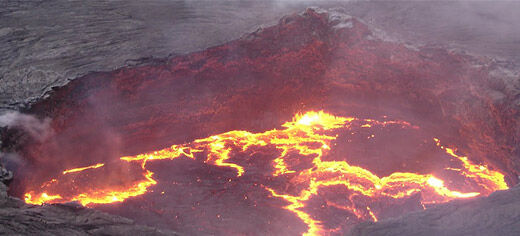
How to plaster the world, cheaply
Scientists have discovered the initial stages by which gypsum crystals form.

Scientists have discovered the initial stages by which gypsum crystals form.

A University garden at this year's Chelsea Flower Show highlights how messy gardens can boost pollination, manage water and increase carbon capture.

Two new studies into the "plumbing systems" that lie under volcanoes could bring scientists closer to predicting large eruptions.

Deputy Vice-Chancellor Professor John Fisher has been appointed a Non-Executive Director of Marketing Leeds.

The new £12.5 million Energy Building has been officially opened.

A University of Leeds spin-out company with an innovative idea to tackle climate change was recently shortlisted for the national Shell Springboard award.

Aggressive American signal crayfish are threatening Yorkshire's native white-clawed crayfish populations because they have better resistance to parasites and are less fussy about what they eat.

A new exhibition of University of Leeds research into the history of eating has opened at Pontefract Museum and will look at how ideas about nutritional health have changed over the years.

During this year's Climate Week, which runs from 12 - 16 March, the University will be showcasing its research and the positive impact it is having on sustainability.

The number of children with conditions such as muscular dystrophy, neurodegenerative disorders or severe cerebral palsy who are surviving into adulthood has been underestimated, a new study shows.